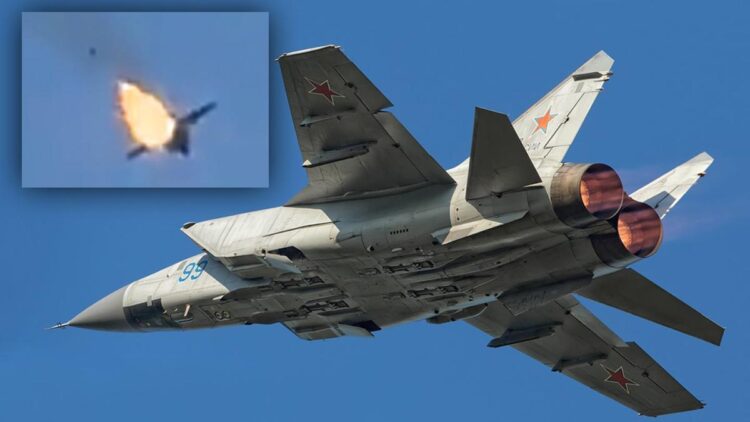
Details remain limited at this time, but a Russian MiG-31 Foxhound interceptor crashed in the country’s northern Murmansk region earlier today after suffering an engine fire. The two crewmen were successfully able to eject before the plane crashed, according to the Russian Ministry of Defense (MoD).
Citing a statement provided by the Russian MoD, the TASS news agency reported that the MiG-31 in question was performing a planned training flight when the accident occurred. Onlookers captured footage of the aircraft as it fell from the sky on fire, which can be seen below. Notably, the aircraft appears to have been flying horizontally while its tail section was on fire, then it appears it lost control and went careening into the ground.
https://twitter.com/Capt_Navy/status/1651239507843244038?s=20 https://twitter.com/qretaxyeta/status/1651243430855450628?s=20
The Russian MoD also stressed, as TASS reported, that “both pilots were catapulted. The pilots were quickly evacuated by the helicopter of the search and rescue service, and their lives and health are not in danger.”
Quoting Russian law enforcement in an earlier report, TASS reported that the MiG-31 ended up crashing into a lake due to one of its engines catching fire. It is unclear at present what exactly caused the engine to catch fire. The outlet also reported in the same article that the crash occurred some ten kilometers (just over six miles) from the city of Monchegorsk near the island of Rizh-Guba.
Which unit the MiG-31 belonged to remains unclear at present, but it’s possible that it was from the 98th Independent Composite Aviation Regiment (OSAP) in Monchegorsk. This would align with TASS’s reporting, given the outlet’s indication that the crash took place very near the city of Monchegorsk.
MiG-31BM take-off on full afterburner, 2020. Andrei Shmatko via Wikimedia Commons
The MiG-31, which evolved from the MiG-25 Foxbat, first flew in 1975 and entered Soviet service in 1981. These long-range, fast aircraft are principally used as interceptors by both Russia and Kazakhstan, and are capable of carrying long-range air-to-air missiles. A small number of MiG-31s have been adapted to fire the Kinzhal air-launched ballistic missile. As we have noted in the past, the Russian Aerospace Forces (VKS) and the Russian Navy operate between 110 and 120 MiG-31 interceptors between them.
MiG-31s have had their share of high-profile incidents in the past – including one belonging to the Kazakh Air Defense Forces which crashed due to an engine fire specifically. Moreover, they continue to play a critical role in Russia’s all-out war against Ukraine, which you can read more about here and here.
We will update this story as more information becomes available.
Contact the author: oliver@thewarzone.com
[ad_2]
Source link







